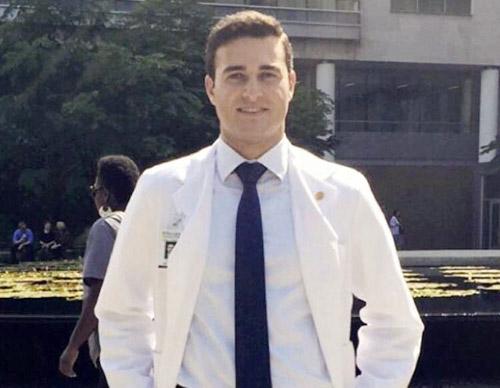You are here
Critical thinking key for changes in region, experts say
By Suzanna Goussous - Mar 11,2017 - Last updated at Mar 11,2017

HRH Princess Ghida Talal (centre) is honoured at a conference organised by Harvard Arab Alumni Association at the Dead Sea on Saturday (Photo courtesy of HAAA)
DEAD SEA — With revolutions in technology, innovation, healthcare services and education, more than 500 participants from 14 Arab countries took part in the 12th Annual Harvard Arab World Conference (HAWC) on Saturday.
At the event, organised by the Harvard Arab Alumni Association (HAAA) and held under the patronage of His Majesty King Abdullah, HRH Princess Ghida Talal spoke at the opening ceremony of the importance of nurturing and improving local talent.
“By fostering local talent, the King Hussein Cancer Centre has emerged as a prime Jordanian and Arab success story, growing in only two decades from just two doctors, to encompass over 200 doctors who work on a par with international qualifications and standards,” the princess, the chairperson of the King Hussein Cancer Foundation board of trustees, said.
Minister of Education Omar Razzaz said the challenge the region is facing is moving from rote memorisation, to critical thinking and participatory learning.
“It’s a huge gulf between just memorising a book and reproducing it in the exam, and learning through experiential processes, and understanding the significance of what one is learning through applied methods,” Razzaz told The Jordan Times.
However, he said the change is achievable, adding that “it will take five to ten years if we were really serious about it”. Empowering young people, Razzaz said, includes equipping them with knowledge and skills for critical thinking, innovation and entrepreneurship.
Accepting dialogue and differences of opinion are key to expanding students’ horizons and stimulating innovative ideas and projects, he added.
Those who take their higher education seriously “have a responsibility to themselves and others around the world to make it a better place”, the minister said.
Health Minister Mahmoud Shiyyab said medical institutions and centres are “trying to promote procedures to show that vaccinations and similar drugs are effective”.
On the subject of health insurance and vaccinations for immigrants arriving from war zones, he stressed the importance of collaboration between countries, non-governmental organisations and stakeholders, as well as making healthcare accessible and available to everyone, with services and fees for immigrants in Jordan similar to non-insured Jordanians.
Najwa Khouri, an Emeritus professor at the University of Jordan teaching pediatric infectious diseases, said the regression of successful accomplishments in the Arab world is caused by a lack of systems to back up projects.
“We have to intensify group work team work; to have a research-support office in every region… and to improve the human health system,” she added.
Khouri urged governments to “trust university administrations and students to form systems” that will improve human health in different areas.
Salma Jaouni, CEO at the Health Care Accreditation Council, said accreditation of a medical centre promotes the provision of care in a safer environment.
Jaouni said: “There are other areas that are very important: continuing medical education and continuing professional education. [These] should be requirements to ensure the improvement of the quality of care provided.”
“The regulatory system, accountability and medical liability [are] other pieces of the puzzle, but what guides this is information… we, in the Arab World, don’t have a culture of reporting, we cannot write policies and procedures if we do not have data,” she said.
Carin Abi Akar, vice president of the HAAA and co-chair of the HAWC, said their aspiration for the conference is to leave participants with skills and information that would change aspects of their lives.
She told The Jordan Times: “Technology has allowed us a form of democratisation of education and healthcare and other resources. In education, technology can give the less fortunate and marginalised access to schooling or high-quality education.”
“Being online and having these educational options will be the biggest enabler to driving systematic change throughout the region; education is a tool that we can use to fight extremism, to foster tolerance and acceptance,” Abi Akar added.
The HAAA has signed scholarships worth $250,000 for Jordanian and other Arab students, she said, adding that the fund would be open to anyone.
University student Nabih Musharbash, who is also a co-founder of the International Youth Ambassadors Foundation, participated in the conference in order to network with businesses that were important to him.
The foundation, he said, was founded by 10 young people who are trying to achieve the 17 UN goals through networking and holding projects with similar NGOs, explaining that the conference will help them meet other businesses through discussions and professional meetings.
“We are working on using education and innovation as weapons. Peaceful weapons that bring people together,” Musharbash said.
Related Articles
AMMAN — Under the theme of “Building Tomorrow”, the 12th Annual Harvard Arab World Conference (HAWC) will discuss key issues such as entrepr
AMMAN — A patient-based approach to healthcare is key to enhancing the quality of medical services, an international expert said Tuesday.Cli
AMMAN — Through a student-run non-profit organisation, a young Jordanian medical student is helping to improve the quality of life for child


















